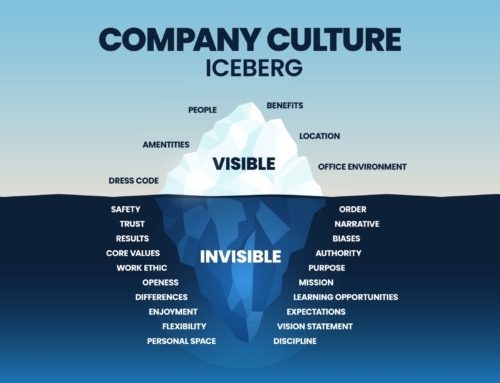Achieving productivity and financial targets are generally top priorities for business leaders. Provided service and/or product orders are being maintained at optimal levels, targets that are not being met by employees over a sustained period are likely to elicit ‘why’ questions from line managers. This article outlines likely employee responses in terms of what matters to them most (at work and in life) and serves to remind business owners/leaders of the main performance ‘pariahs’ that may thwart their business from achieving its potential.
Itemised below are factors and feelings that matter most to staff and, in their absence, may slowly and inexorably lower performance, morale and productivity in the workplace. Provided employees are competent and capable of fulfilling their position responsibilities and they are not suffering a personal crisis, they will deliver their best work if they feel:
- respected and valued by colleagues and senior staff;
- a connection with, and admiration for their supervisors;
- included and a part of something bigger than themselves;
- trusted and autonomous;
- they are contributing in some important way to business objectives;
- supported with adequate resources to do their jobs effectively;
- developed professionally and personally to enhance learning and growth.
People’s jobs tend to be central to who they are and how they perceive themselves. If the conditions and behaviours outlined above are not present, staff will start to feel worthless and self-esteem will fall, with associated drops in morale and performance.
Companies who value their employees, communicate with them, are civil to and care about them reap enormous benefits, including employee satisfaction and loyalty. Employees will achieve, build self- confidence and resilience, cooperate more with others, perform better and more creatively and are more likely to take direction from their line managers.
In one business I consulted in, leaders were so busy working in the business that they paid little attention to their staff (they thought that working hard and focusing solely on their clients, while barking demands would garner admiration from their jaded teams). Leaders were encouraged by me to walk around, talk to their people, keep in mind some of the anecdotes shared and show they appreciated the strengths and talents of their employees. However, priority was not given to this suggestion. Instead, the leaders provided smarter office spaces, a well-appointed kitchen, a range of healthy and unhealthy snacks and inviting break-out spaces, believing these would keep their employees happy. They didn’t. Morale was low and continued to decline with an attendant lowering in productivity. When a new CEO was brought into the business who did care about and respect people, there was a noticeable shift in office energy and morale. No longer were there whispered corridor conversations, long faces, internet searches and Instagram postings when employees thought their bosses weren’t looking. Staff became more focused, self-directed and motivated. Laughter became more prevalent and sharing of weekend activities became the norm on a Monday morning.
This CEO acted with humility and grace. He showed, by example, his belief that every employee should be treated with dignity and respect.
From office cleaner to director, he greeted each one as he passed them and genuinely asked after their welfare. He looked at those with whom he spoke and listened intently. He offered his support and assistance to each staff member, regardless of their role. He openly praised a job well done and held disciplinary conversations behind closed doors. He delegated important tasks to young, eager workers and gave employees freedom to pursue creative ideas. If you are thinking this CEO sounds too good to be true; he is not. He is a ‘real’ person and authentic leader who has a fundamental respect, regard and liking for people that he displays every day in his interactions with them. If you are a leader who values task over humanity, a decision to reverse this and then apply it daily – on your team – will deliver, over time, the staff performance and outcomes you seek. By your actions you will have allowed your employees, and the business, to become the best versions of themselves.
About the Author

Dr Susan Roberts is a professional career coach, with expertise in mentoring, coaching, group facilitation, leadership development and team culture.














Dr Susan Roberts says: